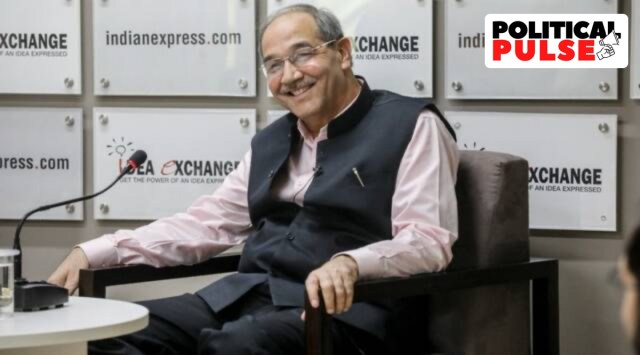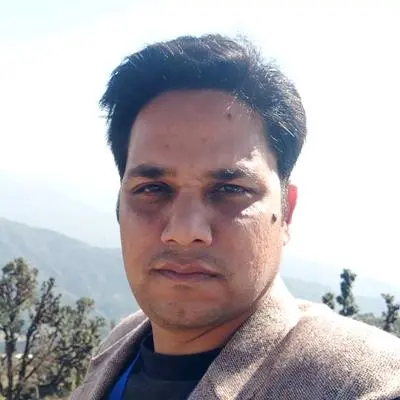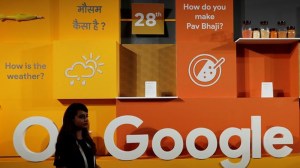
The nomination of Mansoor, a Pasmanda as well as an influential voice within the community given his stature, is part of this exercise. Since he was named to the Legislative Council, Mansoor has resigned as V-C.
Story continues below this ad
In the UP Legislative Council, Mansoor joins the ranks of other BJP legislators such as Danish Azad Ansari (a minister of state in the Yogi Adityanath Cabinet), a fellow Pasmanda, and Bukkal Nawab and Mohsin Raza, who are both Shias, the Muslim sect with lesser antagonism towards the BJP.
There are a total 6 Muslim MLCs in UP, besides 31 MLAs (down from 33 after Azam Khan and his son Abdullah Azam were disqualified), in a state where they are believed to number around 20% of the population.
A senior BJP functionary said, “By nominating a Muslim from a prestigious institution like AMU, the BJP is trying to convince Muslims that it wants to take them along, and wants their support in the service of the nation. The party is preparing the ground for the 2024 Lok Sabha elections. In the coming days, it may also give tickets to some Muslims in urban local body polls.”
The MLC route is also significant as the BJP has long given up on getting Muslim support when it comes to elections. It did not field a single Muslim candidate in last year’s Assembly polls. Its ally Apna Dal (S) fielded Haider Ali Khan from Suar in Rampur district, against formidable SP candidate Abdullah Azam Khan, and managed to get 30% of the votes.
Story continues below this ad
Bukkal Nawab was earlier a Samajwadi Party MLC. He resigned in July 2017, a few months after the BJP came to power in the state. The next year, the BJP nominated both Nawab and Mohsin Raza to the Legislative Council. It was the party’s first Muslim representative in the Upper House in nine years, after the death of Sheema Rizvi (also a Shia) in 2009.
The terms of both Nawab and Raza will be ending next year.
Last year, Ansari was nominated to the Upper House.
The BJP can nominate two more members to the Legislative Council, which would take its strength technically to 80 in the 100-member Upper House.
“We have opted to send Muslims to the Legislative Council as our Muslim candidates have failed to win in Assembly polls,” a BJP leader admitted.
Story continues below this ad
In the 2012 Assembly polls, the BJP had fielded Shakeel Alam Saifi from Sahaswan in Badaun district, but he finished sixth, getting just 1% of the votes. Before that, while it did not field any Muslim candidate in 2007, in 2002, its sole Muslim candidate, Mohammad Gaffar Khan, lost from Tilhar. Khan had also lost in 1996, when he was again the BJP’s only Muslim candidate. His vote share even fell to half of 1996 in 2002 (8.75% of the votes).
In 1991 and 1993, the BJP’s Muslim candidate was Mukhtar Abbas Naqvi from Mau. He lost by just 133 votes in 1991, when, riding on the Ram Janmabhoomi movement, the BJP won the state with 221 seats.
“The defeat of Muslim candidates under the Lotus symbol in Assembly polls indicates the party lost the community’s trust after the Ram Janmabhoomi episode. To rebuild that, the BJP has taken the Legislative Council route,” a BJP leader said.
Last year, the minority wing of the state BJP organised meetings with Pasmanda “intellectuals”, first in Lucknow and then in Rampur. Its snatching of Rampur from the SP in a bypoll later that year was attributed in part to the outreach.
Story continues below this ad
The Pasmanda outreach began after PM Modi urged the party to reach out to “deprived and downtrodden” sections from all communities, at the BJP national executive in Hyderabad last year. The UP BJP claims that over 4.5 crore Muslims have benefited under various government schemes rolled out by the Modi-Yogi “double engine sarkar”.
The minority wing of the state BJP has also identified over 44,000 polling booths across the state that have a significant population of Pasmandas, and will focus on these.
BJP minority wing state president Kunwar Basit Ali said, “Nomination of one more Muslim by the BJP shows the party follows the ideology of Sabka Saath, Sabka Vikas in the truest sense, and gives representation to all communities.”
































